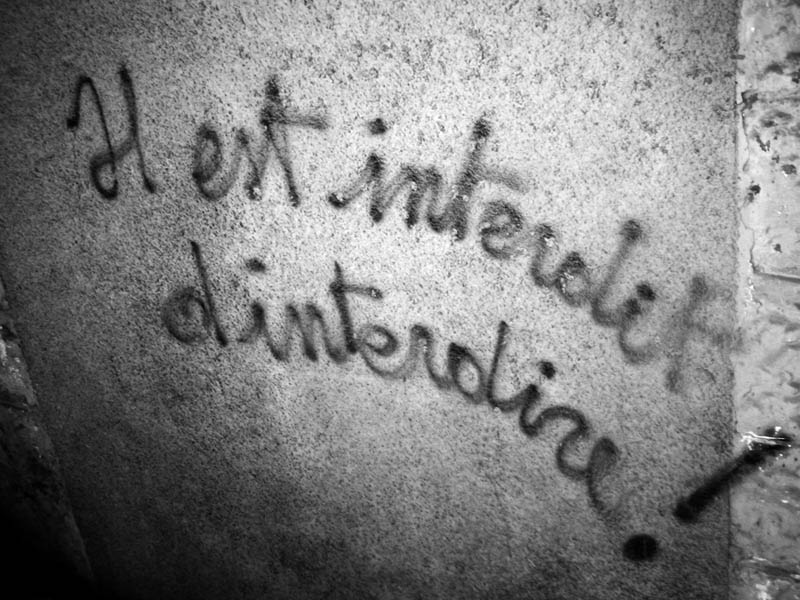 |
| Graffito, Paris, 1968 |
Although she claimed on the stand that all she wanted was to put it all behind her, and she wished Johnny could do the same, Amber Heard refuses to put it all behind her. She continues to dog Johnny Depp on social media, claiming her defeat in court was a grave injustice to herself and for all women. Important elements of the legacy media, including the New York Times, seem to be taking the same stand. Ignoring the judgement of nine jurors who heard the evidence, and indeed of the vast majority of those who watched the trial online, they still insist that Heard was abused by Depp.
The problem is that, to the narcissist, the only definition of good and evil is that “good” is whatever is good for me, and “evil” is whatever is not. Accordingly, it is good to maintain that something untrue is true, if the lie is good for me. If it is best for women that we should believe all women, any evidence to the contrary must be declared evil and shouted down. And it does not matter what happens to any male as a result.
The issue is obvious to me because I grew up with narcissistic parents. I recall as late as my late twenties still trying to reconstruct, in light of my childhood, what “good” really meant, and what “real” meant. Any child of a narcissistic parent is bound to be confused on this, because what they have been taught is both wrong and, to anyone other than the narcissist, incoherent. What is good is whatever is good for my parent? What is real is whatever my parent says is real? Despite my senses, despite reason?
Living in the latter half of the 20th century, or the 21st, does not help. There is a narcissistic philosophy permeating society and its institutions, postmodernism or critical theory, sometimes called cultural Marxism. I can trace it back at least as far as the Frankfurt School. I think the Frankfurt School was a continuation in turn of a philosophy found in Nazism. A bit of graffiti seen during the Paris uprisings in 1968 read “Beware! Even the ears have walls!” The rebellion was against any concept of reality itself. Freedom meant freedom to invent and have “your own truth.”
 |
| Graffito, Paris, 1968 |
“Reality is a function of belief.” I remember that as a watchword back then; I thought it came from Kierkegaard, but perhaps not. Or Blake: “a firm persuasion that a thing is so, makes it so.”
It was seductive, and I was myself at least half seduced in grad school.
But thinking this is insanity, straight up; and sanity is being aware of the good and the true.
We live today in a world gone mad.












No comments:
Post a Comment